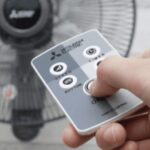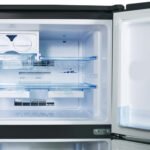The arrival of summer means that cooling devices such as fans and air conditioners are in higher demand and used more than ever. In addition to traditional types, the market now offers a variety of air conditioners, particularly those with Inverter technology, which are advertised as energy-efficient. But is this really the case? Is the amount of electricity saved significant? These are questions that many consumers are pondering.
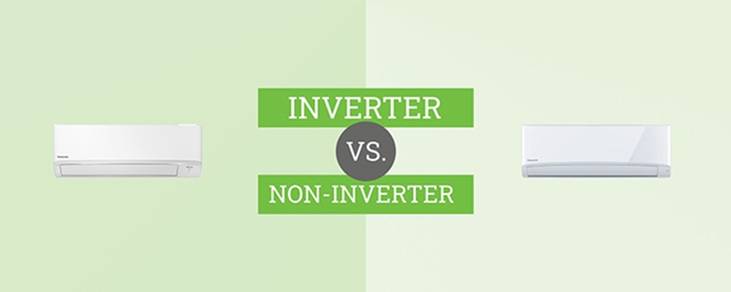
Do Inverter air conditioners truly save more electricity than conventional ones? (Illustration)
How Do Inverter Air Conditioners Work?
According to experts, Inverter technology can save 30-50% of the electricity consumed by air conditioners due to its unique operating mechanism. Specifically, an Inverter air conditioner utilizes a variable-frequency drive compressor. Upon startup, the compressor functions to cool the space to the desired temperature set by the user, just like a regular air conditioner.
However, instead of turning off completely, the motor of the compressor slows down, maintaining a stable temperature. As a result, during operation, the compressor of the Inverter air conditioner does not need to restart multiple times, unlike conventional air conditioners that follow a cycle of continuously turning off and on. This design leads to significant energy savings.
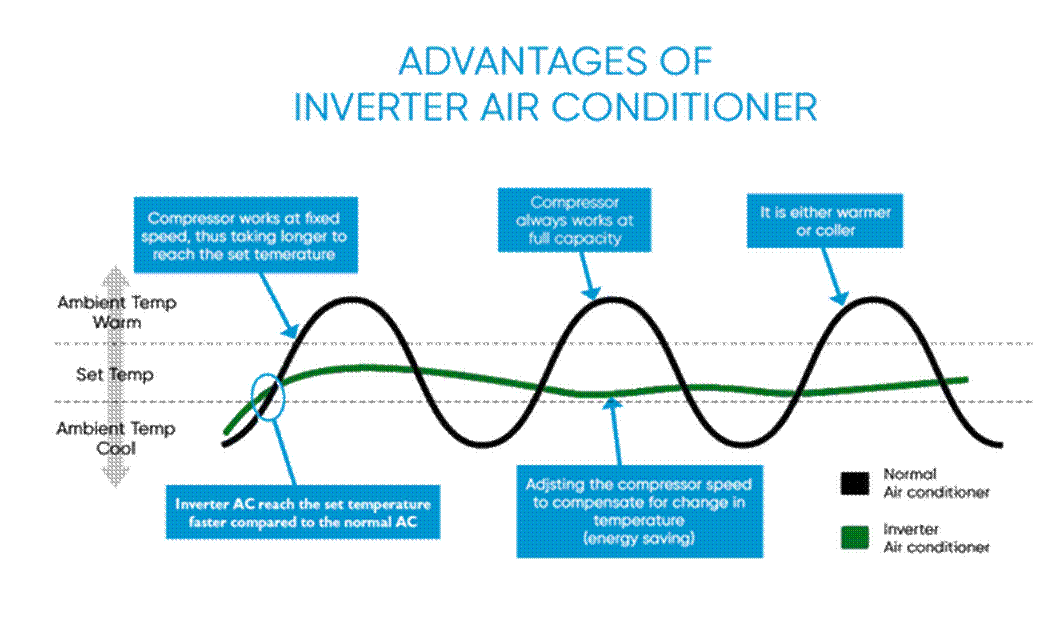
Graph illustrating the difference in operating principles between the two types of air conditioners. Conventional air conditioner (black) – Inverter air conditioner (green)
Expert Experiment: Measuring Electricity Consumption of the Two Types of Air Conditioners
To gain an objective and detailed understanding of the electricity-saving capabilities of Inverter technology in air conditioners, let’s examine and analyze the measurement experiment conducted in 2019 by a group of engineers and experts from Saudi Arabia.
The engineers used two air conditioners, one conventional and one Inverter type, with the same cooling capacity of 18,000 BTU.
The two air conditioners were installed and used in adjacent rooms within the premises of an automobile maintenance office, belonging to the Saudi Standards Organization. The experts explained that these two rooms had the same number of occupants each day and were of equal size – 14.7 square meters. Thus, the external factors influencing the electricity consumption of the devices in these two rooms could be considered comparable.
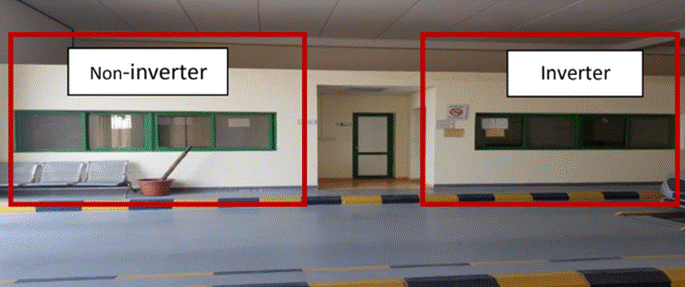
Location of the two rooms where the air conditioners were installed

Room with the Inverter air conditioner

Room with the conventional air conditioner
For 108 days, from July 16 to October 31, the two air conditioners were operated continuously, 24 hours a day. The experts also connected specialized meters to the air conditioners, which instantly transmitted data to a computer for analysis.
The results confirmed that Inverter technology does indeed help save electricity, or in simpler terms, it consumes less electricity compared to conventional air conditioners. Over the three-month period, the Inverter air conditioner consumed an average of 11.6 kWh of electricity per day, while the conventional air conditioner used 20.8 kWh. This indicates that the Inverter air conditioner saved approximately 9.2 kWh of electricity per day, or about 45%.
Considering the residential electricity rate in Vietnam, with an average of 3,000 VND per kWh, families can save around 30,000 VND per day and almost 1,000,000 VND per month by using an Inverter air conditioner instead of a conventional one.
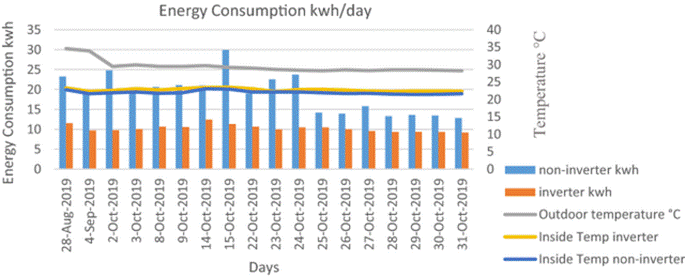
Graph showing the daily electricity consumption of the two air conditioners, with the green representing the conventional and the orange representing the Inverter type
Looking at a specific day, such as August 28, 2019, when the outdoor temperature reached a scorching 35°C, the indoor temperature set for both air conditioners was the same – 24°C. On this day, the conventional air conditioner consumed nearly 25 kWh of electricity, while the Inverter air conditioner used just over 10 kWh.
In addition to its energy-saving capabilities, the experiment and comparisons by the experts also revealed that the Inverter air conditioner operated more stably than its conventional counterpart.
The experts further assessed that the Inverter technology’s mode of operation not only consumes less energy, resulting in electricity and cost savings for users, but it is also more environmentally friendly.
Other advantages of Inverter air conditioners include faster cooling, quieter operation, and higher durability. Due to its advanced technology, Inverter air conditioners are generally more expensive than conventional ones in the current market.
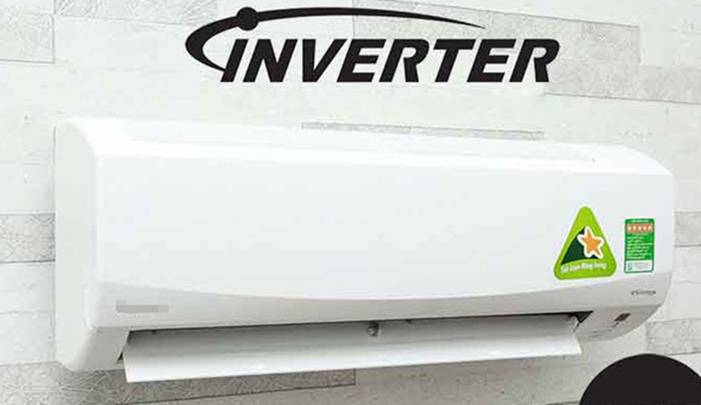
Inverter air conditioners or those with multiple energy-efficiency labels help users save electricity (Illustration)
However, as proven by experts and attested by users, this investment is truly worthwhile, especially for families with high usage demands during the summer.
In addition to Inverter air conditioners, consumers can also opt for air conditioners with multiple energy-efficiency labels. The more stars on the energy label, the higher the energy efficiency and electricity savings the device offers.
According to Đời sống Pháp luật
Setting a Timer on Your Mitsubishi Air Conditioner: A Simple and Quick Guide
Introducing your new Mitsubishi air conditioner and its timer feature! We’ll guide you through the simple and quick process of setting timers on your AC, ensuring a comfortable and convenient experience with your new purchase. With easy-to-follow instructions, you’ll be a pro at scheduling your cooling needs in no time. Stay tuned and get the most out of your Mitsubishi AC!



























